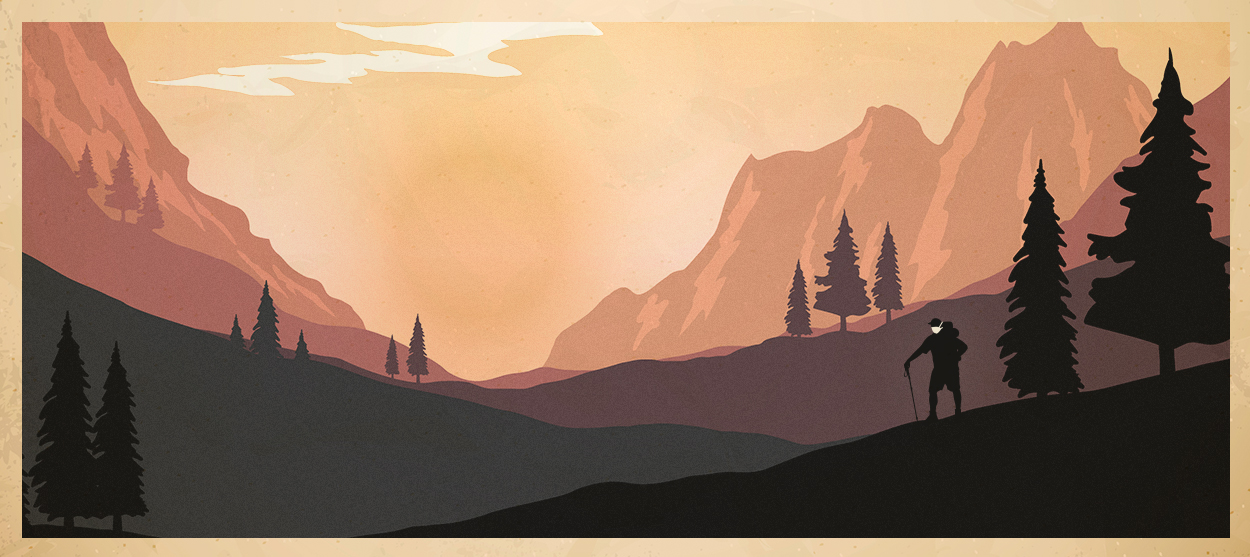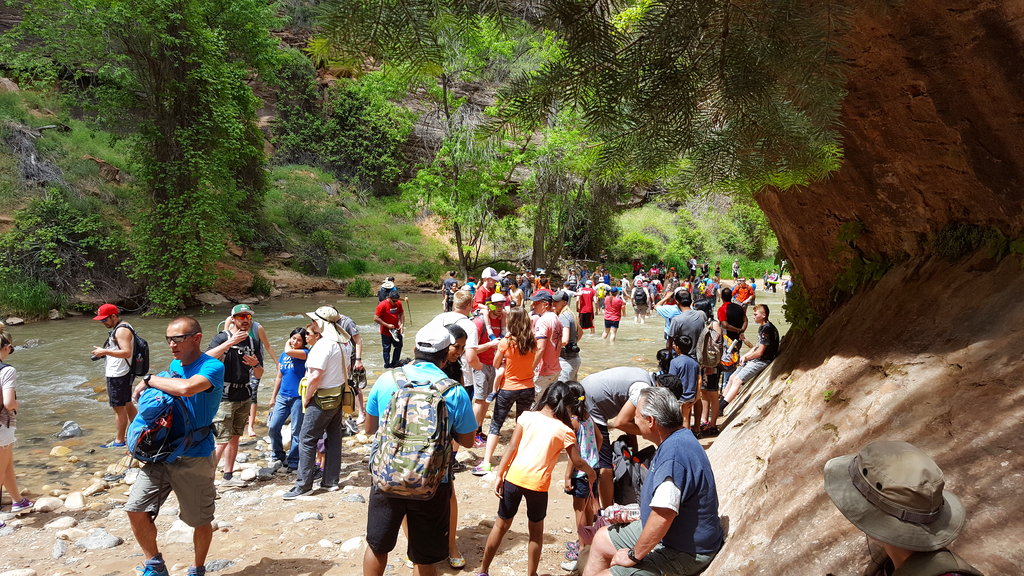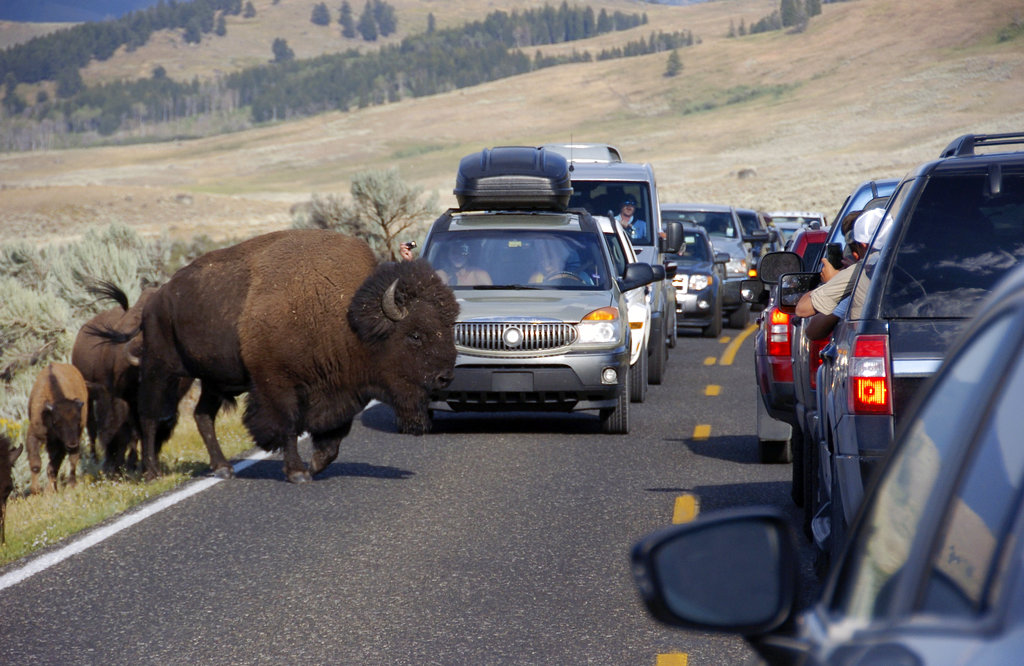How COVID-19 could save America's National Parks
The case for permanent visitor caps


A free daily email with the biggest news stories of the day – and the best features from TheWeek.com
You are now subscribed
Your newsletter sign-up was successful
Among certain environmentalists (and definitely among directors of the "attack of the 50 foot whatever" genre), there is a romantic belief that if mankind disrespects nature long enough, nature will eventually fight back. Some have even taken to describing the COVID-19 pandemic as such a form of ecological retribution: Pope Francis wondered aloud if the disease was "the revenge of nature," while Prince Harry mused that "it's almost as though Mother Nature has sent us to our rooms for bad behavior to really take a moment and think about what we've done."
Such takeaways tend to be pretty simplistic, and veer dangerously close to arguments about "overpopulation," which, in turn, segue pretty quickly into "racism, xenophobia, or eugenics" ("it's almost always, ahem, particular populations that need reducing," Vox further points out). But although Prince Harry was rightly criticized for his armchair ecological philosophizing, he's not necessarily wrong about the part where he describes the pandemic as a chance to "think about what we've done." Or, I might propose, to think about how we can do better in the future.
One major opportunity will be reimagining how we operate America's crown jewels, our National Parks. Crowd management has been an issue in the most popular parks, like Zion and the Grand Canyon and Yellowstone, for decades now, and though reservation systems have been discussed on and off for years, actually implementing them has been slow coming. Yet the urgent pandemic-era solution of limiting park visitors — originally intended to curb outbreaks potentially caused by overcrowding — could offer a permanent way forward.
The Week
Escape your echo chamber. Get the facts behind the news, plus analysis from multiple perspectives.

Sign up for The Week's Free Newsletters
From our morning news briefing to a weekly Good News Newsletter, get the best of The Week delivered directly to your inbox.
From our morning news briefing to a weekly Good News Newsletter, get the best of The Week delivered directly to your inbox.
On Friday, Yosemite National Park in California announced that during its summer peak season in 2021, it will require day use visitors to make advanced reservations in order to enter the park. The decision (one that Rocky Mountain National Park and Glacier National Park are implementing too) is intended to "protect human health and safety and provide as much access as we can," according to Yosemite's superintendent, Cicely Muldoon. Critics on Twitter immediately slammed the move as "communist bulls--t" and "SO STUPID," pointing out, as if it weren't obvious, that the park is outdoors, where risk of infection has proven to be lower.
Last summer, though, cooped-up Americans overwhelmed the National Parks as soon as they reopened, with out-of-state visitors pouring into the parks as well as their surrounding gateway communities — places that tend to be particularly susceptible to deadly outbreaks due to their remote locales and limited hospital resources. Efforts to limit visitors and the strain on nearby communities last year also had a noticeable and immediate positive effect on the environment. From Death Valley to Yellowstone, the closed parks actually resulted in wildlife returning to areas where they hadn't been seen in years. And when parks did at last reopen, some, like Yosemite, implemented reservation systems, which resulted in "visitation rates dropping by half," the New York Post reports.
That's significant, because for decades now, the growing number of visitors in the parks has been a massive concern. In 2016 and 2017, the parks recorded their highest visitor numbers ever: 330.9 million, which is stunning, considering the population of the entire country is 331 million people. The Yale School of the Environment offered a look at what those sorts of crowds meant for visitors of Zion alone:
A free daily email with the biggest news stories of the day – and the best features from TheWeek.com
Instead of coming to get a sense of nature transcendent, people wait an hour or two in traffic just to get through the park gates, and day hikers jostle with hundreds of other people on one-lane trails eroded by overuse. Trash bins can't be emptied fast enough and overflow onto the ground. Wild desert waterfalls at the end of a three- or four-mile trail feel less like a red rock cathedral and more like a crowded beach. Lines of vehicles to get a first-come, first-served camping spot start forming at 4:30 or 5 a.m., and many come away empty-handed. Amusement-park-style lines form to get on the shuttle and into restrooms. [E360]
"We get fistfights in the parking lot," a visitor service assistant at Glacier National Park told The Guardian in 2018. Yet previous proposals to set up a reservation system have been met with resistance and outcry, particularly by surrounding communities who fear a cut in visitors will carry over into their profits. Still, every year, the problem seems to get worse. "These are irreplaceable resources," a former Park Service superintendent continued in that conversation with Yale. "We have to protect them by putting some strategic limits on numbers, or there won't be anything left."


The pandemic, then, offered an unexpected foot in the door for the parks. Not only is it hard to argue with places like Yosemite and Rocky Mountain National Park cracking down on visitors mid-pandemic (particularly in light of the annual photos of hoards crowding parking lots and scenic viewpoints), but doing so has resulted in tangible proof that the lower visitor numbers have a positive effect on the wildlife and the fragile surrounding natural areas. That will need to be an even greater consideration in 2021, too, since domestic travel is expected to boom this summer as more and more of the population gets vaccinated and itches to explore after a year spent locked up inside.
Everyone should be able to enjoy America's National Parks system, but to experience the solitude and beauty of these delicate areas also requires crowd management, the sort of which the parks are legally overdue to be providing. A reservation system would allow for continued and fair access while also fulfilling the promise to visitors of preserving America's wild lands. Though commercial resistance has historically prevented many National Parks from moving forward on such systems in the past, the pandemic presents a unique opportunity for parks to experiment, and ease potential visitors into thinking about planning reservations. Ideally, going forward, the higher-quality experience for all involved will encourage the continued and expanded implementation of such systems in a post-pandemic world.
For all the dramatic imagery in the movies, nature can't really fight back on its own. We need to do the work, and the pandemic has given us a perfect opening to do so.
Jeva Lange was the executive editor at TheWeek.com. She formerly served as The Week's deputy editor and culture critic. She is also a contributor to Screen Slate, and her writing has appeared in The New York Daily News, The Awl, Vice, and Gothamist, among other publications. Jeva lives in New York City. Follow her on Twitter.
-
 How to Get to Heaven from Belfast: a ‘highly entertaining ride’
How to Get to Heaven from Belfast: a ‘highly entertaining ride’The Week Recommends Mystery-comedy from the creator of Derry Girls should be ‘your new binge-watch’
-
 The 8 best TV shows of the 1960s
The 8 best TV shows of the 1960sThe standout shows of this decade take viewers from outer space to the Wild West
-
 Microdramas are booming
Microdramas are boomingUnder the radar Scroll to watch a whole movie
